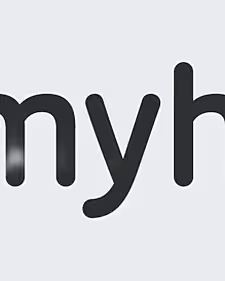
Independent TD Stephen Donnelly has hit out at the government for gagging deputies from discussing the new property tax, accusing them of needlessly rushing it through the Dáil.
The Wicklow and East Carlow representative also claimed the new tax would be unfair, saying it punished city dwellers more than those in rural areas.
Writing in The Sunday Independent, he said: “The Local Property Tax will apply to homeowners at 0.18 per cent of market value, and 0.25 per cent on any portion over €1m. So a house worth €300,000 will be taxed at €540 a year. It will not take account of income or ability to pay. It will not factor in negative equity, or the tens of thousands of euros paid by so many in stamp duty in recent years. It will not consider higher and lower property prices in different parts of the country. So people in Wicklow, in Dublin and other areas with higher property prices will pay multiples of what others will pay for living in exactly the same type of houses.
“The proposed approach will create many inequalities. Let's take an example. Two teachers buy their first homes. One buys a three-bed semi in Roscommon in 2002. The second buys exactly the same house in Dublin in 2006. The first pays €200,000 for the house and €6,000 stamp duty. The Dublin-based teacher pays €400,000 for the house and €24,000 stamp duty. They are paid the same wage, so the one in Dublin already has a lower standard of living due to double the mortgage payments. Furthermore, the cost of providing local services in Dublin are less than they are in Roscommon.
“Today, the house in Roscommon is still worth €200,000, having risen and fallen during the bubble. But the house in Dublin is now also €200,000, having halved in value. So really it's a debt of €200,000, assuming, for the sake of simplicity, that the full amount was borrowed.
“Enter the property tax. Both teachers pay €360 a year – one for a house worth €200,000, the other for a debt of €200,000, having already paid €18,000 more in stamp duty. And for services which cost less to provide. Sound 'fair'?
“So what is this tax? It's not a tax on wealth. If it were, the Dublin teacher would not have to pay. It's not a tax for provision of local services – if it were, the Dublin-based teacher would pay less. And if either of our teachers emigrate, as the owner of the houses, they still pay. Not the person renting the house, the one using the local services. It is not progressive. If it were, then the rate would rise further than the token jump over €1m. It's not fair. If it were, then the tens of thousands of euros paid in stamp duty would be taken into account. It's not necessarily affordable, as the ability of our teachers to pay is not considered.
“And it's not required. I'm not going to bother addressing the Government's plea that the troika are making them do it. But I will address the money raised by the tax. The figure being used is €500m. But that doesn't account for reduced economic activity due to the tax (that's €500m that won't be used in the economy). Using the Government's multiplier, the net revenue take from the tax will be about €350m.
“Let's put that in context. Next year's Government spending includes annual increments to public sector workers. Just taking the past four years, these amount to €700m for 2013. So the property tax will raise half the money needed for pay rises given out during an insolvency process. During Minister Noonan's opening speech he said the property tax will "pay for vital public services". So not really.
“As well as those who should not pay, there is a growing number who cannot pay. July's What's Left Tracker survey by the League of Credit Unions, estimates that two in three adults now have less than €100 at the end of the month after essential bills are paid. That's before the cut to child benefit and increase in PRSI. We are told that one in 10 children in Ireland is now in food poverty. Add to that the one in five residential mortgages in arrears or being restructured. A lot of people don't have any more to give. Many of them are the same people who paid boom-time stamp duty.
“So what's to be done? The Government plans to ram through the property tax next week. This should be stopped, with the Bill referred to both the Finance and Local Government committees for examination in 2013. The rate should be set by each local authority, to ensure that the minimum necessary is collected, that some don't pay multiples of what others pay due to geography lottery, and that there is a rock-solid link between the money and the services provided. The occupiers of the house should be charged, as they are the ones using the services. The net value of houses should be used – it is unconscionable to tax people in negative equity. There should be tax credits for stamp duty paid in recent years.
“The Men In Charge have got this one badly wrong. Their backbenchers agree. Olivia Mitchell said: "We'll be lucky . . . to avoid a revolution." Mind you, she also said she'd vote for it. Government backbenchers often say it's better to be inside the tent, where they can influence their party leaders. This coming week we'll see what that influence is worth.”





